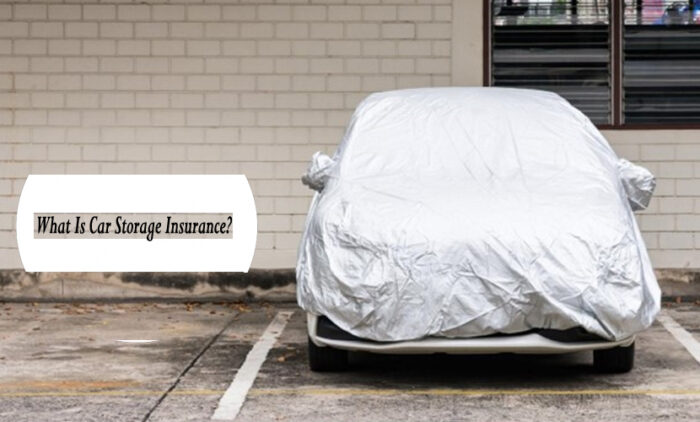Car storage insurance, also referred to as storage coverage, is designed specifically for vehicles that are not actively used and are stored for extended periods.

Unlike conventional car insurance policies that provide coverage for various events such as collisions, theft, and vandalism while the vehicle is in use. Car storage insurance focuses on protecting against potential damages that may occur while the vehicle is parked and not in operation.
This type of insurance typically includes protection against weather-related damage, fire, theft, and vandalism, depending on the specific policy.
Moreover, car storage insurance is essential for individuals going on extended vacations, owners of seasonal vehicles, deployed military personnel, or owners of classic cars seeking to safeguard their vehicles during periods of inactivity.
The significance of car storage insurance lies in its ability to cover risks that arise when a vehicle is stationary, including theft, vandalism, weather-related damage, and other potential hazards that may occur when the vehicle is not in motion on the road.
This unique policy type is tailored to address the specific needs of owners who require protection for their vehicles during periods of storage, making it an important aspect of vehicle ownership and maintenance.
How Does It Work?
Car storage insurance provides a simplified coverage for inactive vehicles, shielding them from driving-related risks.
Consequently, as a policyholder, you can opt for comprehensive coverage without the necessity of collision coverage, provided the car remains off the road.
Furthermore, comprehensive coverage within any storage insurance policy extends to non-collision damages such as vandalism, natural disasters, or theft.
To activate a car storage insurance policy, you must inform your insurance provider that the vehicle will be in storage and not in use for a specified period.
Subsequently, your insurer may adjust the policy to reflect the reduced risk, resulting in a reduction in the insurance premium during the storage period.
However, it’s important to note that you may still be required to maintain a minimum level of insurance coverage on your vehicle, depending on the laws in your state or country.
When To Use It
This insurance is ideal for situations where the vehicle will not be used for extended periods, such as:
- Collectors who have classic cars that are rarely driven and mostly kept for display.
- Seasonal vehicles like convertibles, motorcycles, or RVs that are not used year-round.
- Deployed military personnel who will be away from home for extended periods.
- Vehicles in a long-term repair or restoration process.
- Individuals going on long vacations.
- If you inherited a car and do not have any active plans to use it soon.
However, if someone drives or uses your car while you are away, it will not be qualified for storage.
How Much Does Car Storage Insurance Cost?
The price of a car storage insurance policy falls below that of a standard car insurance policy. This is because of the reduced coverage and diminished risk of incidents while the vehicle is in storage.
However, it’s important to note that the exact cost can vary significantly depending on various factors. They include the chosen deductible, specific coverage options, the vehicle’s value, and the duration of storage.
For the most accurate estimate, it’s advisable to request quotes from multiple insurance companies.
How To Get Car Storage Insurance
Obtaining car storage insurance entails several steps. In this guide, we will outline the fundamental procedures you need to follow to secure this type of coverage. They include:
- Get in Touch with Your Current Insurance Provider.
- Look Around for Insurance Providers.
- Make Changes to your Policy.
Get In Touch With Your Current Insurance Provider
Before proceeding, it’s important to discuss your requirements with your existing car insurance provider. There’s a chance they may offer a storage option or make adjustments to your current policy to accommodate the temporary change in coverage needs.
Look Around For Insurance Providers
If your current insurance provider doesn’t offer storage coverage, it’s recommended to compare quotes from various insurance companies. This ensures you’re getting the best rate for your storage insurance. However, be clear about the type of storage, the level of coverage you require, and the duration when obtaining quotes.
Make Changes To Your Policy
After choosing an insurance company, collaborate with them to implement changes to your policy. This may entail transitioning to comprehensive-only coverage and ensuring it meets any legal insurance requirements in your area.
Final Thought
Car storage insurance presents a practical solution for safeguarding cars and vehicles during extended periods of non-use. It provides peace of mind at a reduced cost compared to standard car insurance policies.
With a clear understanding of its functionality and appropriate timing for utilization, car owners can make informed decisions that align with their specific circumstances and requirements.


